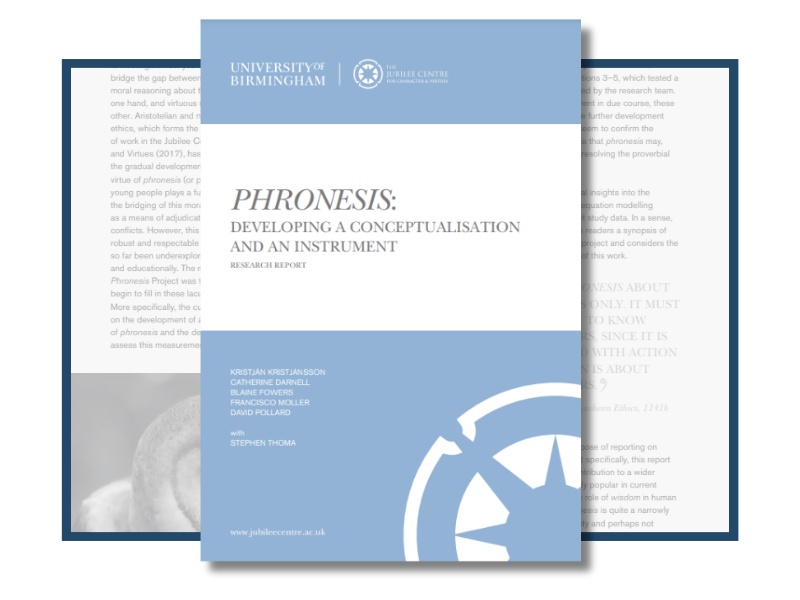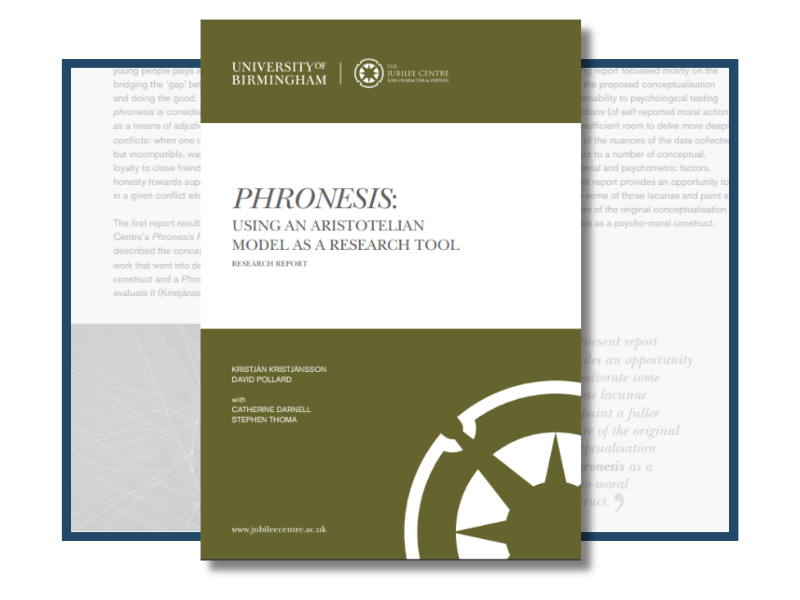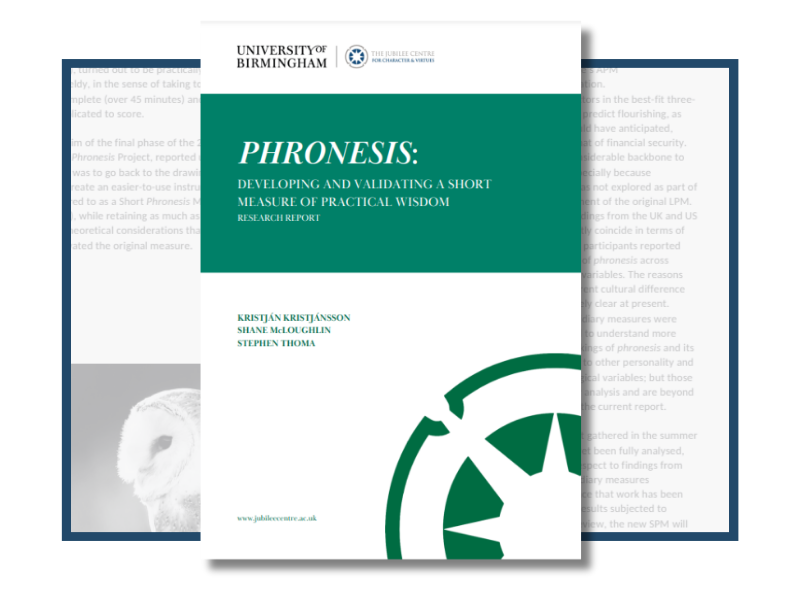Project Overview
The Psychological Development of Character: Emotion, Identity and Phronesis project aimed to investigate the factors that motivate moral action in adolescents. Specifically, the project focussed on the ‘gappiness problem’; addressing what bridges the gap between virtue literacy (knowledge of virtues) and virtuous moral action (acting in a virtuous way). Existing theories of moral action suggest three main factors that may mediate this link: moral identity, moral emotions and moral reasoning. Typically, moral identity refers to how important moral traits are to one’s sense of self, moral emotions reflect emotional capacities such as empathy and the ability to comprehend another’s emotional state, and moral reasoning refers to the discernment and application of moral principles.
While there is a general consensus that these factors play a role in motivating moral behaviour (with the empirical evidence strongly supporting the first two), it remains unclear how these factors relate to each other and how important they are in predicting moral behaviour, particularly in relation to moral development. In addition, moral reasoning tends to be equated and measured using Neo-Kohlbergian methods, which, from an Aristotelian perspective, do not necessarily reflect the reasoning suggested by phronesis (practical wisdom), which emphasises the ability to integrate and adjudicate moral conflicts.
The project therefore sought to address the following questions:
- What motivates virtuous behaviour in adolescents? Is it moral emotion, moral identity or moral reasoning? Or is it a combination of all three factors?
- How do these factors develop between early and late adolescence?
- Does the moral reasoning associated with phronesis better predict virtuous moral behaviour, and does it help to integrate the existing factors?
- Can these factors be cultivated to enhance moral development, e.g. through school-based interventions?
The research involved a mixed-methods approach using questionnaires, dilemma-based tasks, Experience Sampling Methods (ESM), as well as the development of a new phronesis measure.
Key findings from the first report, Phronesis: Developing a Conceptualisation and Instrument conveyed that two pilot studies fit the hypothesised phronesis model well; that latent components were found to be structurally related to a predicted latent phronesis variable and promisingly that this variable was found to predict the latent prosocial behaviour variable; and that the proposed phronesis model may have validity in both adolescent and adult samples which has important implications for solving the ‘gappiness’ problem.
Key findings from the second report, Phronesis: Using an Aristotelian Model as a Research Tool, included: female participants outperformed male participants on all components of phronesis; adults outperformed adolescents on moral reasoning qua moral adjudication and on moral emotion; higher action–justification correspondence predicted two kinds of self-reported prosocial behaviour; and adolescents outperformed adults on moral perception.
Key findings from the third report: Phronesis: Developing and Validating a Short Measure of Practical Wisdom, included: Exploratory and confirmatory factor analyses helped create a theoretically credible and practically viable measure of phronesis, which should not take more than 20 minutes to complete; the data confirm acceptable psychometric properties overall: a good fit with a three-component model of phronesis.
– Third research report, Phonesis: Developing and Validating a Short Measure of Practical Wisdom, published on 15th September 2023.
– Second research report, Phronesis: Using an Aristotelian Model as a Research Tool, published on 11th February 2021.
– First research report, Phronesis: Developing A Conceptualisation and an Instrument, published on 7th April 2020.
In 2021 and 2022, the Centre published A Cyber-Wisdom Approach to Digital Citizenship Education and Educating Cyber-Wisdom: A Feasibility Study respectively.
A Cyber-Wisdom Approach to Digital Citizenship Education presents and compares key findings from two surveys which explored the extent to which both adolescents and parents understand the importance of, and act on, wisdom and character virtues in the digital age. Key findings from the surveys suggest that the virtue that most adolescents want their friends to show on social media is wisdom, with 38% choosing this as one of their top two desired qualities. Similarly, asked to select two qualities, most parents (56%) want their children to show wisdom when using the internet.
Educating Cyber-Wisdom: A Feasibility Study presents theoretical, empirical, and practical findings about how the virtue of cyber-wisdom might be cultivated. The report brings new understandings about how cyber-wisdom might be conceptualised, educated, and measured. Key findings of the report include the development of the world’s first four component model of cyber wisdom education and the preliminary validation of new measures for all four of the components that can potentially be used in the future, as well as providing insights Into the positive impact of a new targeted course developed by the team aimed at 13 to 16-year olds.
Phronesis: Developing a Conceptualisation and an Instrument

Phronesis: Using an Aristotelian Model as a Research Tool

Phronesis: Developing and Validating a Short Measure of Practical Wisdom

